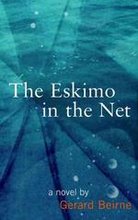Creative Computing
So, Ada Lovelace, Lord Byron's daughter. Computers. Babbage.
That's where we were. Hofstadter of course looking over our shoulder.
Well there is an old argument concerning Artificial Intelligence and whether computers can ever capture the essence of the mind.
Not so, Ada says, because a computer can never, in and of itself, be creative.
Not so! Old Hofs insists. He claims that the essence of creativity is pursuing a theme through all its possible outcomes and being clever enough to recognize a bright new possibility with the combinations that emerge. Others have similarly argued that creativity can be explained as a process combining exploration and recognition.
Margaret Boden, Cognitive Scientist with all the hoop-la distinguishes three degrees of creativity: 1) The simplest type of creativity occurs when one explores permutations and combinations exhaustively, hoping for an inspired change; 2) The next degree of creativity involves exploring an unknown space, that is, a dimension or variable that has not been used before; 3) The third and highest degree of creativity is again when one explores a space but this is a space that has been transformed in a way that others have not considered.
Can a computer be programmed to pursue these three stages? Why ever not?
And what about us, this vast pool of shoddy writers that we are? Can we pursue these stages more effectively? Or are we going to let our computers write better novels and poems than we do?
Yeah, you're right, most probably.










No comments:
Post a Comment